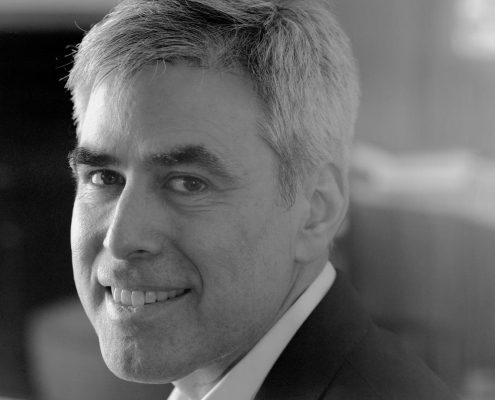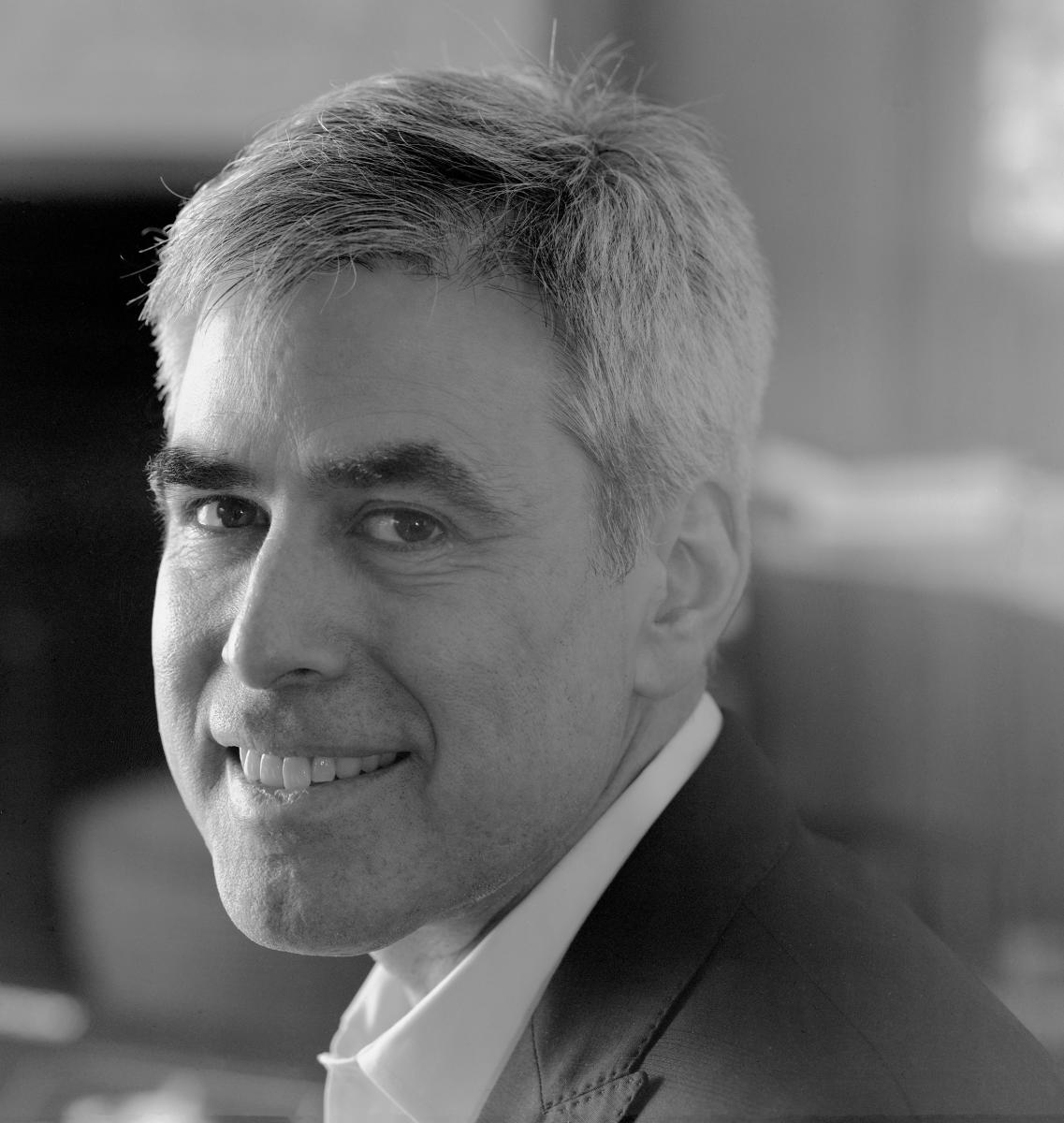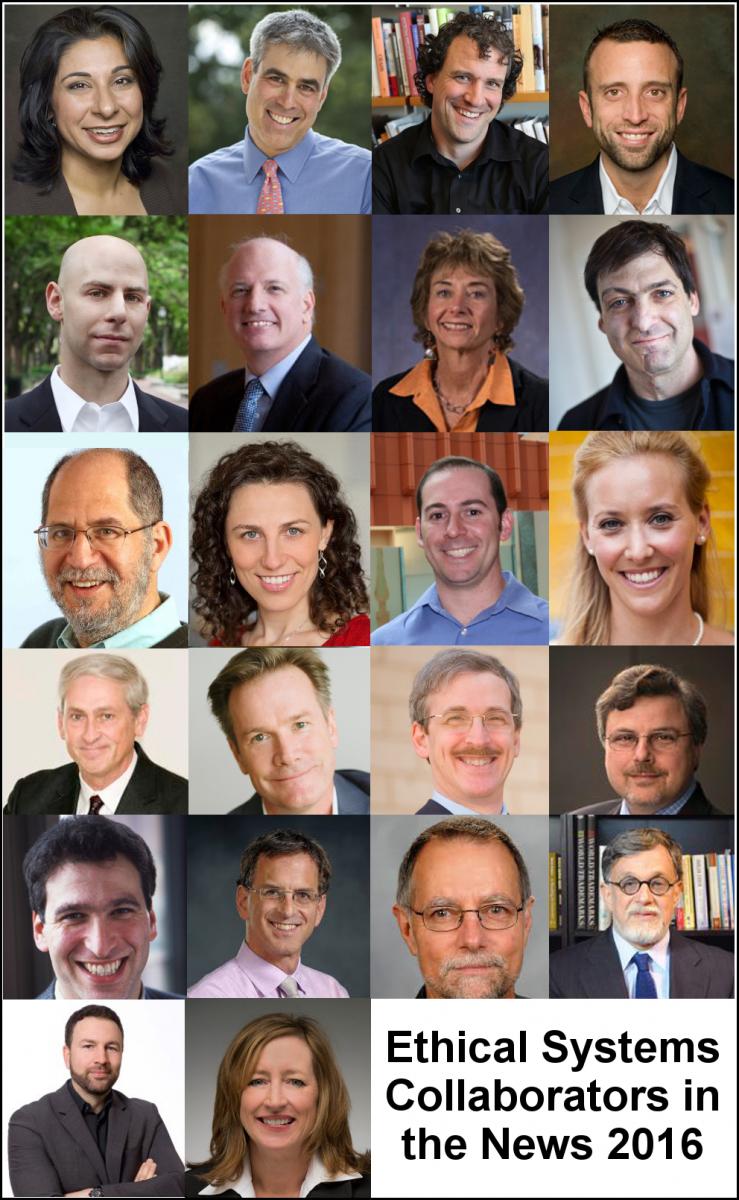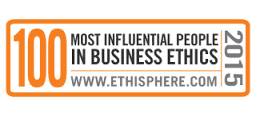Tag Archive for: jonathan haidt

The Unique Stupidity of the Last Decade in America
Blog, Corporate Culture, Leadership, Podcast, Speak-Up and Call-Out Culture, Trust
End of Year Letter, 2018, from Jon Haidt and Azish Filabi
Blog
Featured Ethics and Social Science Expert: Jonathan Haidt
BlogInterview with Jonathan Haidt, author of The Righteous Mind and Thomas Cooley Professor of Business Ethics at NYU Stern
 What are your main areas of research/work around business ethics?
What are your main areas of research/work around business ethics?
What I discovered when I moved to NYU-Stern in 2011 is that there’s a lot of great research on behavioral ethics going on at business schools, which I had not known about as a social psychologist studying morality, and which ethics and compliance officers generally didn’t know about. What was needed was a way to gather up all the existing research and make it available and accessible to businesspeople. That’s why I created the first iteration of Ethical Systems back in 2011 – it was originally just a simple website to bring together all the varied worlds of knowledge that one needs before one can try to improve these complicated things called corporations. In 2014 the site was re-launched as the much larger collaborative project that it is today. Through our collaborative approach, we are researching topics where we think business could benefit, such as culture measurement.

Making Business Ethics a Cumulative Science
Blog When businesses and researchers cooperate, collaborate and communicate, everyone wins. A new article in the premiere edition of Nature: Human Behavior by Ethical Systems founder Jonathan Haidt of NYU Stern and collaborator Linda Trevino of the University of Pennsylvania illustrate just how far deeper partnership can take the field of business ethics research and why that will help companies and people to flourish.
When businesses and researchers cooperate, collaborate and communicate, everyone wins. A new article in the premiere edition of Nature: Human Behavior by Ethical Systems founder Jonathan Haidt of NYU Stern and collaborator Linda Trevino of the University of Pennsylvania illustrate just how far deeper partnership can take the field of business ethics research and why that will help companies and people to flourish.
In their piece, entitled “Make Business Ethics a Cumulative Science” Haidt and Trevino outline the various factors that have impeded ties between the business and research communities. Some are due to the misalignment between operational models— academics depend on open access to information towards the goal of building on research and understanding, while businesses need to maintain tight control over information about their inner-workings and ethics— while others are based in the complexity of business ethics as a field.

2016 End of Year Letter from Jonathan Haidt
BlogDear Friends:
 2016 has been a year of extraordinary change. Many of these changes make our mission – to help companies strengthen their ethical cultures using behavioral science research – more vital than ever.
2016 has been a year of extraordinary change. Many of these changes make our mission – to help companies strengthen their ethical cultures using behavioral science research – more vital than ever.
Consider just these three facts:
- Populist movements around the world are usually antagonistic towards large corporations, which they often perceive as engaging in predatory behavior
- The recent U.S. election likely means a new and lighter-touch approach to regulation and compliance, particularly in the financial services industry
- The Brexit vote means that Britain must quickly decide upon its own approach to regulation.
Putting these together: The world is hungry for new ideas on how to improve business ethics in ways that do not rely as heavily as before on detailed rules formulated by legislatures and regulators. There is a desperate need to help businesses become more self-regulating, in ways that will protect multiple stakeholders while increasing the dynamism and profitability of the business.
That is exactly what Ethical Systems is doing and we have made great progress towards our goals this year.

2016 Collaborators in the News: A Year of Many Achievements
Blog 2016 was a year of many achievements for our growing collaborator network. We invite you to browse a highlight list of the research, articles, appearances and talks that helped advance our mission and promote a greater understanding of ethics, decision making, and ethical systems design.
2016 was a year of many achievements for our growing collaborator network. We invite you to browse a highlight list of the research, articles, appearances and talks that helped advance our mission and promote a greater understanding of ethics, decision making, and ethical systems design.
Browse our collaborators and their highlights and achievements from this year >>

Ethical Systems Design: Crosspost from AuditFutures
Blog Cross posted from the AuditFutures Blog. See original post here.
Cross posted from the AuditFutures Blog. See original post here.
On 23rd November, we hosted a conference exploring the concept of organisational culture and what systemic approaches we can take to foster ethical culture within organisations, particularly professional service firms. This interdisciplinary conference engaged around 100 leading international academics, business leaders and accounting professionals in a holistic discussion on the significant role of culture in organisations.
The event built on our Future Firms project which explores in a systemic way the interdependencies of the different aspects of the firm: culture, governance, technology, services, structure, and people and what this means for the future of .
Our Ethics by Design Conference explored the key challenges and trends, faced through the interaction between the three levels of employees, the organisation and society. Participants explored the possible design ideas that can be implemented to work towards overcoming these challenges and forming a more ethical culture.

Strategy and Business Interview: Jonathan Haidt
Blog Jonathan Haidt, Thomas Cooley Professor of Ethical Leadership at New York University's Stern School of Business, was interviewed by strategy+business and shares his insight and expertise on ethical systems design and the various initiatives of our organization.
Jonathan Haidt, Thomas Cooley Professor of Ethical Leadership at New York University's Stern School of Business, was interviewed by strategy+business and shares his insight and expertise on ethical systems design and the various initiatives of our organization.
What causes a company to undermine its own future through ethical missteps? What enables it to lie to regulators, conceal critical data, and take chances on fraudulent activity that might, sooner or later, come to light? Is it the rapacious nature of capitalism itself, as some believe? Is it the work of a few “bad apples,” unavoidable in a milieu of dynamic innovation? Or is it some innate aspect of human behavior, impossible to regulate completely, but possible to understand? This inquiry, framed by New York University professor Jonathan Haidt and a global network of colleagues, could help keep companies out of trouble in the future — or perhaps change our view of what trouble really means.
Continue reading this in-depth interview with Jonathan Haidt >>

Is Political Ideology a Compliance and Ethics Risk?
Blog Cross posted with permission from ES Collaborator Jeffrey Kaplan's Conflict of Interest blog
Cross posted with permission from ES Collaborator Jeffrey Kaplan's Conflict of Interest blog
In a post last week on the Harvard Law School Forum on Corporate Governance and Financial Regulation, Danling Jiang, Associate Professor of Finance at Florida State University, summarizes a recent article she authored with Irena Hutton, Associate Professor of Finance at Florida State University; and Alok Kumar, Professor of Finance at the University of Miami: “Political Values, Culture, and Corporate Litigation,” which was published in the latest issue of Management Science and which “examine[s] whether the political culture of a firm defines its ethical and legal boundaries as observed by the propensity for corporate misconduct.”
In a post last week on the Harvard Law School Forum on Corporate Governance and Financial Regulation, Danling Jiang, Associate Professor of Finance at Florida State University said of recent research, “Using one of the largest samples of litigation data to date, [they] show that firms with Republican culture are more likely to be the subject of civil rights, labor, and environmental litigation than Democratic firms, consistent with the Democratic ideology that emphasizes equal rights, labor rights, and environmental protection. However, firms with Democratic culture are more likely to be the subject of litigation related to securities fraud and intellectual property rights violations than Republican firms whose Party ideology stresses self-reliance, property rights, market discipline, and limited government regulation.”
This is interesting – if not necessarily surprising – stuff, and particularly so in an election year. But does it bear on the work of C&E professionals? And does it have anything to do with conflicts of interest?

Ethical Systems Lands 8 of the Top 100 Most Influential in Business Ethics
Blog Each year, Ethisphere recognizes 100 individuals that have made a material impact in the world of business ethics through their annual 100 Most Influential People in Business Ethics list.
Each year, Ethisphere recognizes 100 individuals that have made a material impact in the world of business ethics through their annual 100 Most Influential People in Business Ethics list.
Ethical Systems collaborators have long been featured on this prestigious list. This year, however, is the first we have had 8 of our distinguished leaders included at one time.
